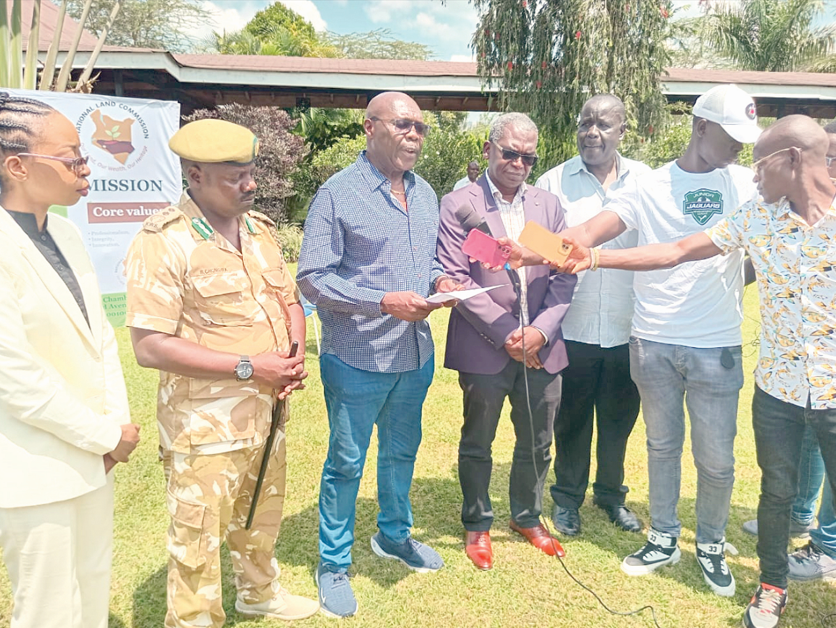Lands agency crafts new Blue Economy plan
By Kepher Otieno, November 15, 2024The National Land Commission (NLC) is working on the development of a comprehensive Marine Spatial Plan (MSP) aimed at unlocking the potential of Lake Victoria’s Blue Economy.
This initiative is a part of a broader strategy to manage the lake’s resources and the surrounding ecosystem while also ensuring the sustainable use of water-based resources for economic development.
Yesterday, NLC Commissioner Reginald Okumu said the new envisaged laws would address the water-sector problems.
He spoke while opening a two-day workshop on enhancing good governance of natural resources in Kenya’s Lake Region Economic Bloc and engagement with county governments and stakeholders in Kisumu.
Reduce conflicts
The MSP aims to create a strategic framework for managing the various sectors that depend on the lake’s resources. This includes fishing, aquaculture, transportation, and tourism, as well as safeguarding critical ecosystems such as wetlands and biodiversity hotspots.
Okumu said the new MSP seeks to reduce conflicts between various stakeholders, such as fishermen, farmers, and conservationists, while also fostering investments in sustainable industries.
Additionally, the plan will enable the government and local authorities to optimise resource use, mitigate environmental degradation, and ensure that the benefits of the lake’s resources are equitably distributed across the riparian countries—Kenya, Uganda, and Tanzania.
With support from Kenya Ethical and Legal Issues Network ( KELIN), they vowed to ensure successful drafting of the new Marine Spatial Plan.
KELIN chairman Ambrose Weda supported the NLC’s efforts in developing the Marine Spatial Plan in liaison with the Ministry of Fisheries and Blue economy.
According to Weda, the focus should not just be on the management of the lake’s physical resources but also on establishing policies that promote transparent and accountable governance.
He stressed that effective management of Lake Victoria’s resources must also ensure that communities and stakeholders have clear rights to access and utilise the water, wetlands, wildlife, and related ecosystems.
“It is vital that these communities are not marginalized but are given the opportunity to benefit,” said Rachier.
More Articles

